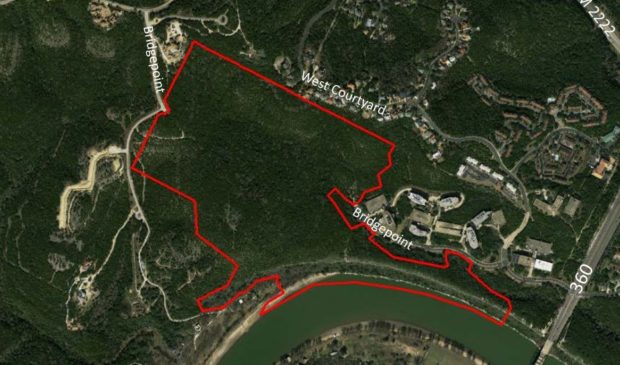Camelback is back, but this time at the Ethics Review Commission
Monday, December 17, 2018 by
Jessi Devenyns After so much contention and inflamed passions on both sides, it’s no surprise that the story of the Camelback planned unit development did not end with the Nov. 1 approval by Council.
On Dec. 12, the Ethics Review Commission heard a preliminary case against Jim Duncan, the vice chair of the Zoning and Platting Commission (ZAP), for a complaint alleging that his failure to recuse himself from a vote about the Camelback project was unethical.
“This is the first time in 50 years that someone has challenged my ethics,” said Duncan, who is a retired city planner and a longtime member of the city boards and commissions circuit.
Juan Penelas, who filed the case, argued that since Duncan owns a condo in the Monte Vista Condominiums – which are between the Camelback and Champion PUDs – his vote to weigh in on the merits of the PUD plan had an inherent conflict of interest.
“He helped this go forward. He knew of his interest in other instances. He recused himself in other instances,” said Penelas.
Prior to his Oct. 2, 2018, vote in favor of the Camelback tract plan at ZAP, Duncan recused himself from voting on the plan for Champion tract 3 on July 17, 2018. According to a statement he submitted to the Ethics Review Commission, he had been a vocal opponent of the Champion plans prior to his appointment to the Planning Commission and was advised by Richard Suttle, the lobbyist for the tract at the time, to recuse himself from the vote since his “ability to objectively evaluate (the) site plan might be compromised.”
There was no legal counsel present at the meeting to contradict Suttle’s opinion, so Duncan opted to recuse himself from the vote.
In October, however, when he asked legal counsel the same question, he was advised that “such decisions were up to each commissioner and should be based on whether they felt their vote might possibly result in any personal financial gain.”
Duncan told the Austin Monitor that he “honestly” did not think he stood to benefit economically from the future plans for Camelback and so he chose to vote. His vote was the sixth vote for a 6-2-2 approval of the site plan to move forward.
The Monte Vista Condominiums were part of the nine neighborhoods that offered their written support for the Camelback PUD.
Fred Lewis, who was representing Duncan on the case, told commissioners that “there has to be a reasonable expectation grounded in reality … that there’s going to be a direct economic impact.”
The commissioners found themselves wrestling to define that direct economic impact.
“I just think that anyone who is trying to purchase property … there are benefits to development,” said Commissioner J. Michael Ohueri. “In terms of property value increases … I tend to see there being a reasonable impact.”
However, Commissioner Ohueri did note that in regard to financial gain, “there are no firm numbers that have been mentioned.”
When asked what the financial impact of developing the Camelback tract would be for Duncan as a condo owner in a nearby neighborhood, Penelas noted that it was more the ancillary benefits that would create economic impact over time, including a new city park, less traffic and less density on the Champion tract that abuts Duncan’s neighborhood.
“The best argument you have for a direct effect is affecting traffic?” asked Commissioner Tray Gober.
Commissioner Peter Einhorn agreed, saying that to win this case against Duncan, Penelas had an “uphill fight.”
Although Penelas alleged that there were four pieces of evidence on which his case rested – among them the fact that Duncan’s property is “adjacent” to the Camelback PUD – Commissioner Luis Soberon noted, “I didn’t necessarily get a clear sense … what the economic effect of consequence really is.”
Both the commissioners and the parties involved in the case had difficulties throughout the hearing divorcing the discussion from the merits of the PUD and focusing on the economic impacts of the development and how they might benefit Duncan.
The commission made a motion to move the case to a final hearing but the motion failed 4-3, which dismissed the case. Commissioners Donna Beth McCormick, Luis Soberon and Debra Danburg voted against moving the hearing forward and commissioners Brian Thompson, Mary Kahle and Ben Stratmann were absent.
Map courtesy of the city of Austin.
The Austin Monitor’s work is made possible by donations from the community. Though our reporting covers donors from time to time, we are careful to keep business and editorial efforts separate while maintaining transparency. A complete list of donors is available here, and our code of ethics is explained here.
You're a community leader
And we’re honored you look to us for serious, in-depth news. You know a strong community needs local and dedicated watchdog reporting. We’re here for you and that won’t change. Now will you take the powerful next step and support our nonprofit news organization?






